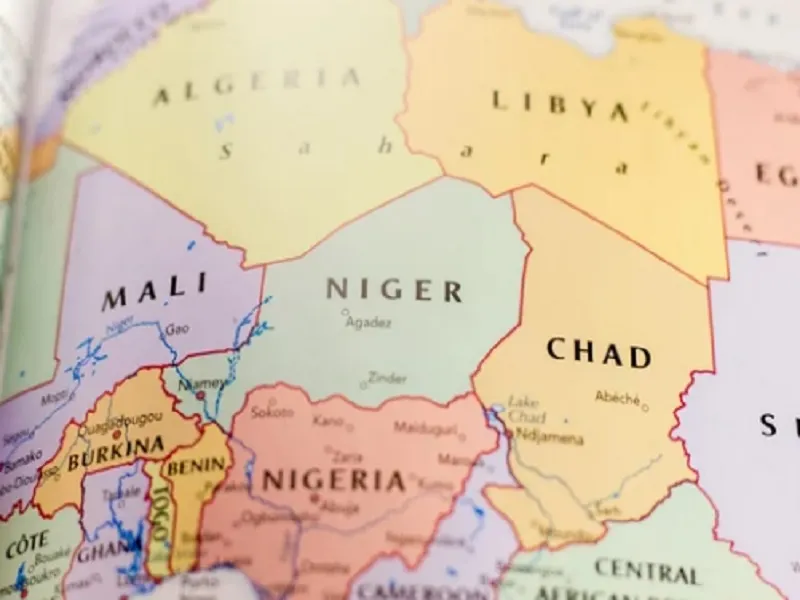While the possibly impending withdrawal of US forces from Niger is definitely a victory of sorts, the proverbial “Battle for the Sahel” in the New Cold War is likely far from over.
It was wondered last month whether the US could salvage its Nigerien base deal after the military authorities scrapped their partnership pact upon being disrespected by visiting American officials. The news that Russian instructors just entered the country on a training mission likely spells the end of the Pentagon’s influence there. The departure of US troops might soon follow, though it’s unclear whether it’ll due to the military authorities explicitly demanding it or voluntary to avoid Russia spying on them.
In any case, this is a monumental development since it means that Russian forces are now present in all three of the Sahelian Alliance/Confederation’s states after deploying to its Malian core several years back and then entering Burkina Faso in January. Their bloc also withdrew from ECOWAS later that month too, which bolstered their credentials as a new regional integration framework for others to join if they’re interested. The combined effect of all this is that Western influence in the Sahel was dealt a deathblow.
It’s premature to pop the champagne, however, since the US is expected to pivot to the Ivory Coast as was explained here in mid-March two weeks before a top Alt-Media influencer wrote the same here in a way that indisputably plagiarized some of the aforesaid analysis. It’s important to share a side-by-side comparison showing the three occasions where the second writer plagiarized the first, since those who were exposed to that later article might not be aware that its ideas were stolen from an earlier one:
- First Article: “Guinea is the top contender (to defect from ECOWAS) due to its recent political history and having the geographic capability to provide the neighboring Sahelian Alliance/Confederation with reliable sea access.”
- Second Article: “Guinea already offers the geographical capacity to provide the alliance with credible maritime access. That will lead to the progressive extinction of the western-controlled, Nigeria-based ECOWAS.”
- First Article: “[The Ivory Coast and Senegal] are thus considered possible ‘targets’ of the Russian-partnered Sahelian Alliance/Confederation, hence the need to ‘protect’ them more than Chad and Gabon. Regarding those last two, Chad has impressively recalibrated its previously Western-centric foreign policy to pragmatically balance between that bloc and Russia.”
- Second Article: “Ivory Coast is more strategic to Washington than, for instance, Chad because Ivorian territory is very close to the Sahel alliance. Still, Chad has already recalibrated its foreign policy, which is no longer Western-controlled and comes with a new emphasis on getting closer to Moscow.”
- First Article: “The stage is therefore set for the US to deploy drones to France’s Ivorian base on exaggerated anti-terrorist pretexts that really serve to keep the Sahelian Alliance/Confederation in check while also monitoring Russian activity there.”
- Second Article: “What lies ahead for Empire? Perhaps US ‘anti-terror’ drones shared with Paris at the French base in the Ivory Coast to keep the Sahel alliance in check.”
Having clarified for the uninformed reader that whatever they might have read circulating across the Alt-Media Community about this before from that second author was actually plagiarized from the first one, it’s time to move on to analyzing exactly what the consequences could be of such a move. Prior to Russia’s new training mission in Niger, it was explained here how that country might have kept US forces while kicking out the French as geopolitical insurance of sorts from being targeted by Hybrid War.
Accordingly, that exact same scenario is now more likely than ever as a result of Niger canceling its aforesaid insurance policy out of self-respect after being disrespected by visiting US officials, though that doesn’t mean that it’s imminent though. Any potential US drone base redeployment to shared French facilities in the Ivory Coast would place neighboring Burkina Faso and Mali, the latter of which is the newly formed Sahelian Alliance/Confederation’s core, in the West’s crosshairs like never before.
Mali is already struggling to fend off offensives from religious extremists and ethnic (Tuareg) separatists, and this could become more difficult if the US and France put more pressure upon it along the southern front. The worst-case scenario for Mali would be if one or both of their spy agencies also begin operating out of Mauritania, which readers can learn a bit more about here, and begin to use it and the Ivory Coast in the same way as they’re presently using Poland to wage their proxy war on Russia in Ukraine.
Russia might be requested to scale up its military assistance to Mali if that happens, which would probably be sufficient for stopping these Western-backed proxy offensives on the Sahelian Alliance/Confederation’s core state, but then complementary ones might begin elsewhere. Burkina Faso can also be influenced from the Ivory Coast, while Niger remains vulnerable to influence from historically pro-Western Nigeria even though Abuja has made a big deal about wanting to join BRICS.
With these factors in mind, while the possibly impending withdrawal of US forces from Niger is definitely a victory of sorts, the proverbial “Battle for the Sahel” in the New Cold War is likely far from over. Those who celebrate shouldn’t do so excessively because the worst Hybrid War pressure might be yet to come, though that all depends on how competent the American and French spy agencies are, which of course can’t be taken for granted after their spree of regional setbacks over the past few years.

